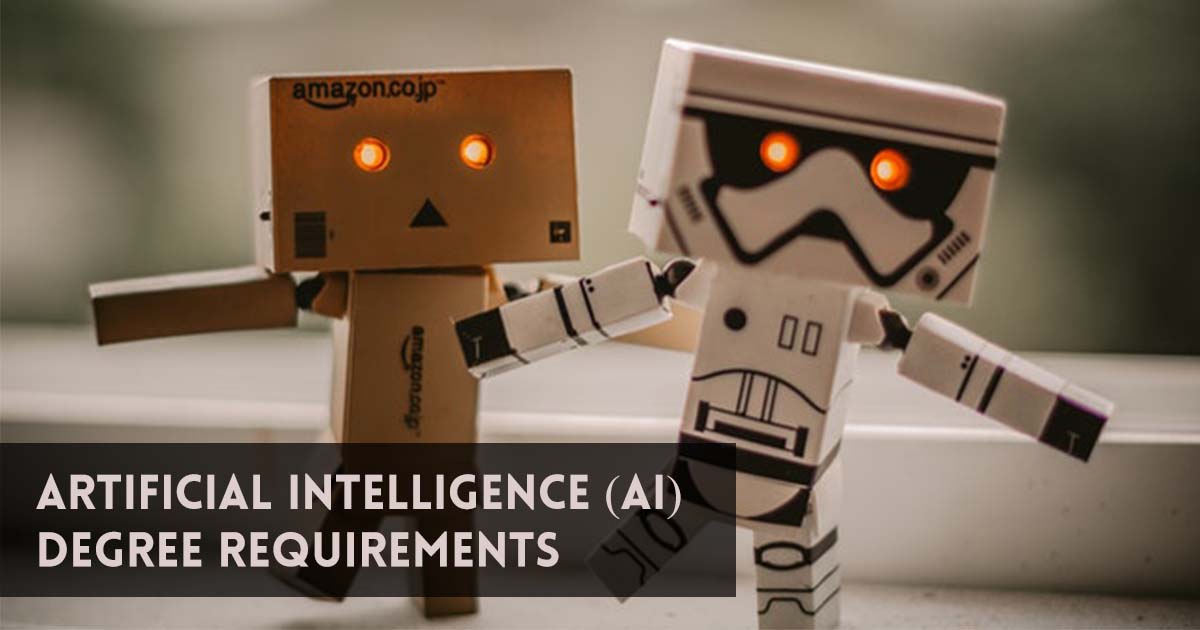A degree in artificial intelligence (AI) is distinguished by simulation, engineering, and the usage of advanced computer tools and programs. Applicants interested in exploring jobs in this area require specialized ideology based on arithmetic, innovations, reasoning, and design perspective foundational principles. Written and verbal communication skills are also essential for conveying how to efficiently deploy AI resources and services inside industry settings. To acquire these skills, those interested in an AI career should investigate the different career choices within the field.
Educational or Degree Requirements for Artificial Intelligence (AI)
Most degrees or programs in artificial intelligence (AI) form the backbone of basic computer technology and math backgrounds. Positions at the entry-level require at least a bachelor’s degree, while positions involving supervision, leadership, or administrative roles often require master’s or doctoral degrees. Typical coursework requires studying:
Various math levels including likelihood, statistics, algebra, calculus, logic, and algorithms:
- Bayesian networking or modeling of graphics, including neural nets.
- Physics, robotics, engineering
- Computer science, language programming, and coding.
- The Concept in cognitive science theory.
A degree in artificial intelligence (AI) can be acknowledged inside an assortment of settings including privately owned businesses, open associations, training, expressions of the human experience, social insurance offices, government organizations, and the military. A few positions may require trusted status preceding recruiting relying upon the affectability of data representatives might be relied upon to deal with.
Skills Requirements:
Technical:
Languages such as R, Python, Java, and C++: A coding task is an important skill that you need as an AI engineer. It is important to be competent in language programmings such as R, Python, Java, and C++. Concepts such as data structure and classes are thus helped. The idea that companies often rely on candidates with different abilities can also provide an additional advantage of knowing more than one programming language.
Algebra and Calculus Linear Statistics: It is important to understand statistics in order to understand how algorithms and machine learning work. There will be a lot of Gaussian distributions, standard deviation, and mean. It is advisable to gain a solid understanding of probability and models such as Naive Bays, Hidden Markov, and Gaussian Mixture.
Non-Technical:
Industry Knowledge: With knowledge of the sector ‘s scenario, it will help AI professionals working in this field to understand the real-world scenario and the pain of the industry.
Critical Thinking: Numbers and data should plot AI engineers to use this finding and to jump to insightful conclusions.
With the creation of AI, artificial intelligence (AI) is now being implemented in every sector which enhances professional or degree demand 2x. Online training institutions which provide AI qualification and machine-learning qualification, etc., with more professional seeking to update themselves for new-age technology careers.
Communication: It can become difficult if one does not communicate in plain words when explaining concepts such as artificial intelligence and machine learning. It would be much better to provide strong listening skills because individuals with so limited technological experience choose to understand these principles.
All you need to know about Artificial Intelligence
Learn Artificial Intelligence
Learn Artificial Intelligence with WAC
Other Skills in Demand
| Artificial Intelligence | Data Science |
| Digital Marketing | Business Analytics |
| Big Data | Internet of Things |
| Python Programming | Robotics & Embedded System |
| Android App Development | Machine Learning |

